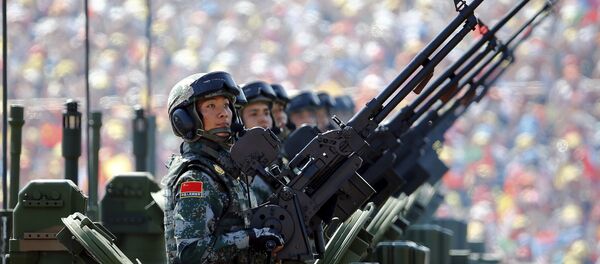"The likelihood that next year [Beijing will announce] a large increase in the defense budget is quite low because China has its own agenda and it will probably not be dancing to [Washington's tune]," he asserted.
Earlier this month, spokeswoman for the National People's Congress (NPC) Fu Ying announced that the country will increase its defense spending by 7 percent, the lowest rate after decades of nearly uninterrupted double digit increases. On Monday, US President Donald Trump said that he wants to raise the defense budget by $54 billion by limiting funding to what the US administration sees as low priority initiatives, including foreign aid and environmental programs.
"With regard to the military budget, it's a little bit of a surprise because … we know that China is undertaking so many so-called military modernization programs, for instance force reduction and force reorganization, as well as acquisition and procurement of new weapons systems. [The announced increase] surprised many of the analysts," the analyst observed.
Dr. Ding, director of the Institute of International Relations at National Chengchi University in Taiwan, pointed out that a single-digit increase in military spending comes at a time when the Chinese economy is slowing down. On Sunday, Premier Li Keqiang said that Beijing has cut its growth target for this year to around 6.5 percent.
"We are not surprised because in the past four to five years China's economic growth has been declining. This is a trend. Actually Chinese leaders have been fully aware of this trend. For instance, Chinese [President] Xi Jinping said that he is more focused on economic transformation than the economic growth rate," Dr. Ding said.
Last year the world's second-largest economy grew by 6.7 percent, the weakest expansion recorded since 1990. Despite the slowest rate in more than a quarter of a century, it fell within Beijing's growth target of 6.5 percent to 7 percent.
Never miss a story again — sign up to our Telegram channel and we'll keep you up to speed!


